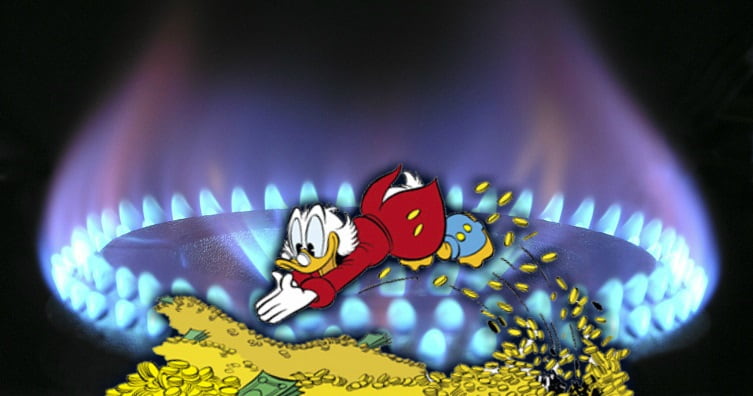UK households owed £928m energy bill refund, but here’s how to avoid overpaying
Huge numbers of people are overpaying on their bills, but there are plenty of ways to make sure it doesn't affect you!

Millions of households in the UK have overpaid on their energy bills, with the average home owed £85 by their provider.
Thousands of students are likely to be affected, as the survey found that a whopping 39% of houses have overpaid. However, just 9% of households who are in credit have actually asked for a refund.
These surplus payments can amount to over £100, leaving energy suppliers to benefit from £928 million of extra cash.
What’s on this page?
Why are people overpaying on their energy bills?

Direct debit (DD) is one of the easiest ways to pay energy bills, since you can set them up at the start of the year rather than having to remember to pay every month. Suppliers will often offer discounts to customers paying in this way, too.
However, the convenience comes at a price. The DD amount is based on the energy supplier's estimate of a customer’s energy usage over a year.
Often the estimates are based on the previous year, which means that if your house was last occupied by some leccy-loving students, your provider will assume you'll be just as happy to splash the cash.
It's easy to fall into the trap of overpaying as a student, as university is likely to be the first time you've had to set up and pay household bills. What's more, living in shared accommodation can make things even trickier.
Do you live in the most affected area?
The survey, conducted by GoCompare Energy, included a regional split of households who were overpaying, as well as indicating the average overpayment within these areas.
Find out how likely a household in your area is to pay too much in bills, whether that be your term-time university residence or your permanent address.
| Location | Proportion of households overpaying | Average overpayment |
|---|---|---|
| UK | 39% | £85 |
| Scotland | 40% | £97.10 |
| Wales | 33% | £68.20 |
| East of England | 39% | £95.50 |
| East Midlands | 39% | £63.60 |
| London | 29% | £81 |
| North East England | 44% | £103 |
| North West England | 47% | £88.50 |
| South East England | 41% | £85.60 |
| South West England | 37% | £78.40 |
| West Midlands | 35% | £81.50 |
| Yorkshire and Humberside | 49% | £88.30 |
The research reveals wide differences between UK regions. Households in London are the least likely to overpay on energy bills at 29%, while almost half of those in Yorkshire and Humberside (49%) have paid too much.
Average overpayment is also split by region, and figures range from £63.60 in the East Midlands, to the North East of England, where the average overpayment is a huge £103 per household.
How to avoid paying too much on your energy bills

Getting your head around paying energy bills, and household bills in general, can be a bit of a task.
The most important thing is to take regular and accurate meter readings of both your gas and electricity meters. It’s a good idea to do this monthly (or whenever your bill arrives), but at the very least you should do it when you move in and out of the property.
We'd also recommend that you carefully read your bill when it arrives, taking a close look at the estimated usage and seeing how accurately it reflects your actual usage.
Also make sure to get your utilities and bills set up as soon as possible after moving into a new place. Some companies only offer 12-month contracts at minimum, meaning that the later you set your account up, the more likely you are to pay for weeks (or even months) of energy that you won’t use.
What to do if you overpay

If you take a meter reading and find out you have paid for more energy than you’ve used, you can leave the overpayment on your account to offset against future bills.
Many energy providers have policies which cover refunds, although you should double check this before signing up. Companies will usually do an annual review of your account and, as long as you provide an accurate meter reading, they will automatically refund overpayments if they are more than £5.
However, if you discover you have paid too much and want the money back immediately, you are entitled to ask your supplier for a refund at any point during the year. Providers are obliged to refund you there and then, unless there are reasonable grounds to not do so.
If you're keen to stick with a direct debit, approaching your energy supplier to discuss lowering your monthly fee is another option.
It’s also a good idea to think about how you could save on your energy bills. Simple ways to do this include wrapping up a bit warmer instead of turning the heating up, turning off lights when they're not in use, and making sure you do full clothes washes rather than just washing two or three jumpers at once.
Be savvy and switch your energy supplier if you find a better deal, even if it seems like a lot of effort. Use our student bills comparisons to help you find the best deal.
Check out more tips here for how to save on your energy bills on a daily basis.








